Slideshow: Fun with Puns
What comes to mind when you think of “an Enid Collins” design? Colorful critters? Flowers and cable cars? Boatloads of bling? While these are hallmarks of vintage Collins of Texas handbags, Enid’s word choices are just as important to her designs as graphics. Using deceptively simple-seeming tongue-in-cheek word play, Enid employs over-familiar tropes such as clichéd figures of speech and visual puns to put clever twists on literal meaning, adding layers of implied understanding and a subtle sense of surprise, often ironic. The technique engages our minds at a deeper cognitive level, and demonstrates her artistic sophistication. (Hover over each image to see more information.)

From Collins of Texas Spring 1963 collection. Get it?
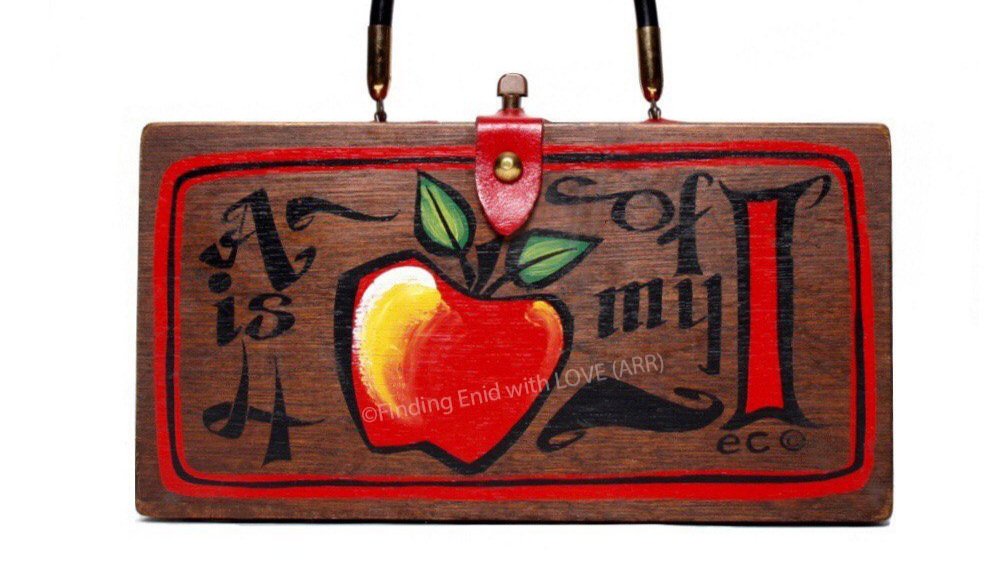
This 1965 design provides a basic lesson in how to read Enid Collins: read the words and the images, in combination. Enid’s designs tap into the weird way in which our minds automatically call up images when we read words, and call up words (names) when we look at images.
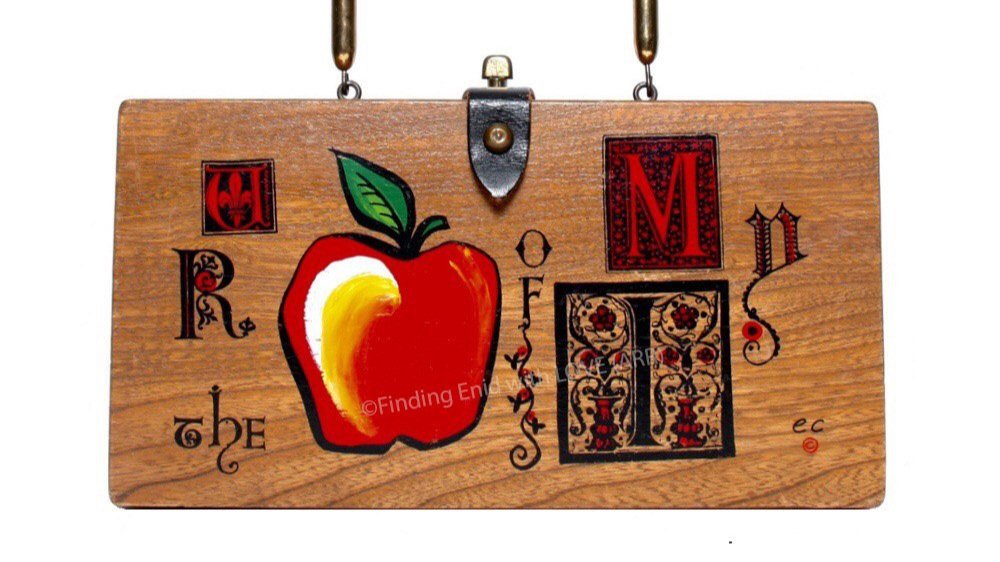
This design from 1961 is one variation on a theme Enid revisited many times over the years.

Again, the combination of text and image are key to reading the design title. From a 1970 series of bags adorned with only a black and white screenprint, no jewels.

For this bag from 1965, Enid draws on the idiom “Don’t count your chickens before they’re hatched,” which is so familiar to most of us that she need use only the first four words, and engage our imaginations to finish the phrase. The idiom and the metaphor “nest egg” evoke a homespun financial cautiousness echoed in her use of faux coins “protected” by chicken wire along with the baby chicks.
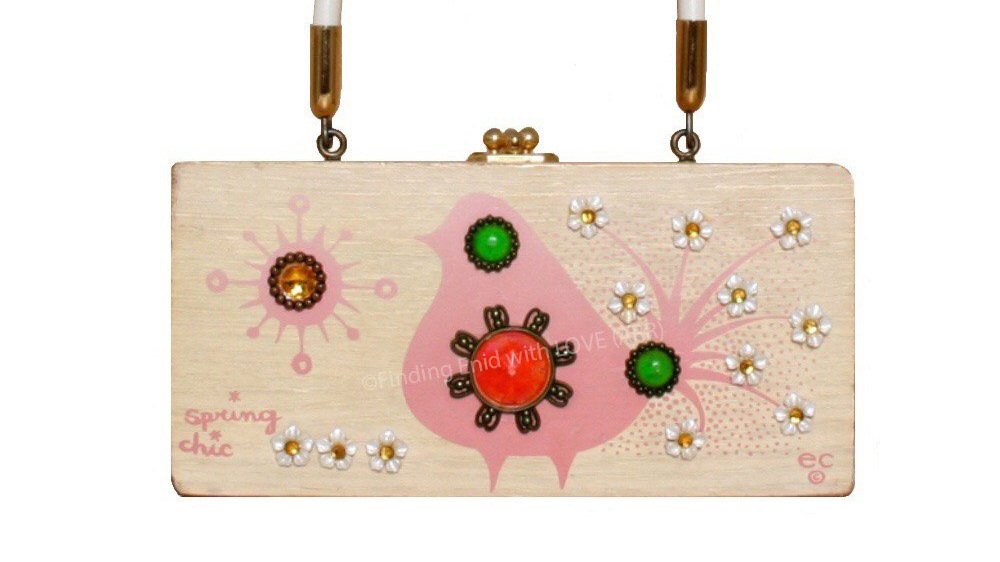
Ironic wordplay on “chick” and French "chic”, from 1968. Enid often used French or Spanish titles, sometimes mingling them with English.

Enid’s titles often draw on homophones, figurative language in which two or more words share the same pronunciation but different meanings and/or spellings. Here, she plays with “scent” and “cent.” Like many designs, there’s a reference to money. From the Spring 1964 collection.
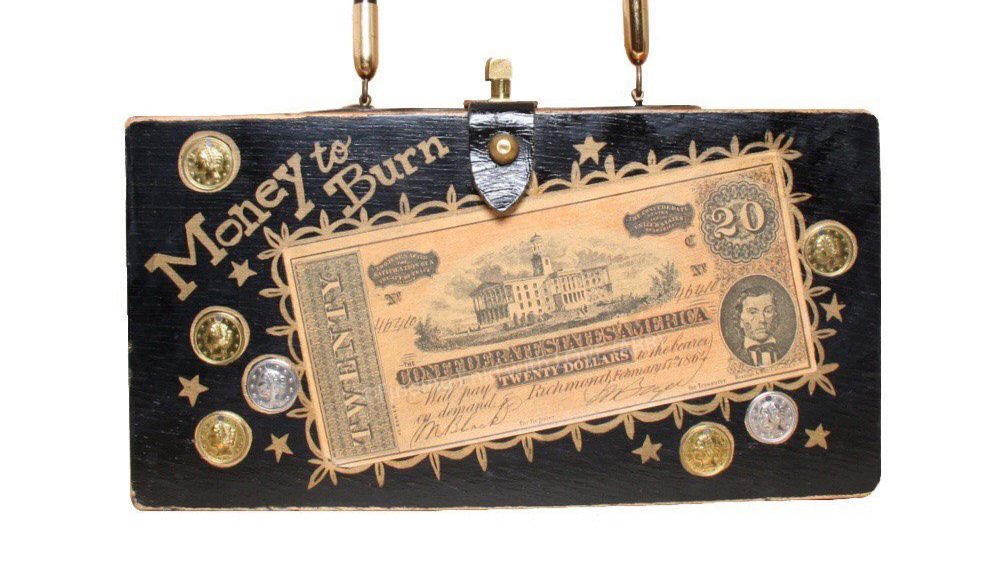
This 1961 take on one of Enid’s first box-bag designs assumes fashionistas are up on their American history lessons.

Enid’s puns sometimes included the fact that the design was a box bag, as in this 1962 fish-themed piece.
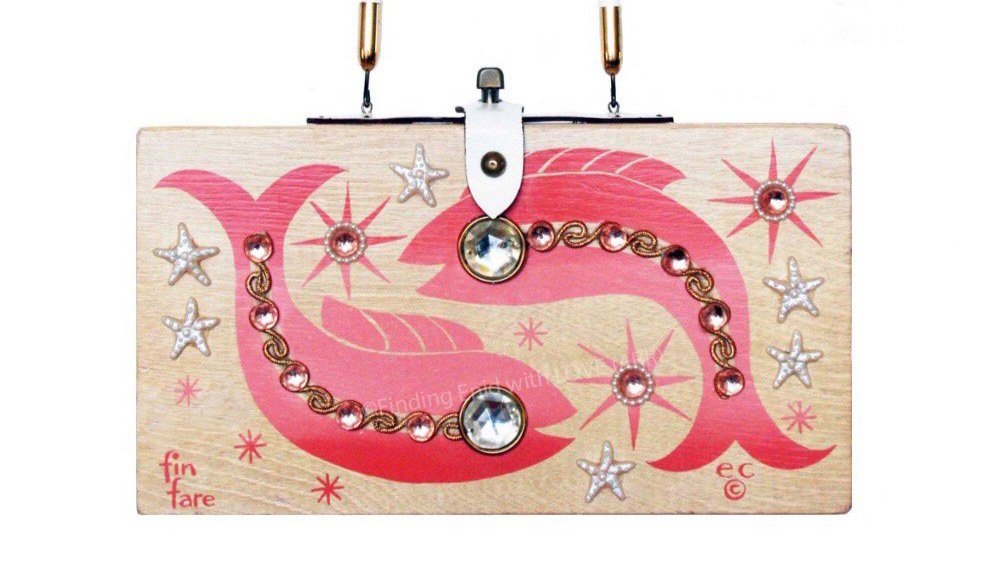
This 1964 play on the term “fanfare” suggests these cute, frolicking finned friends are bound for the dinner plate. This somewhat dark element to the humor demonstrates a sophistication and audience awareness in Enid’s title-writing.
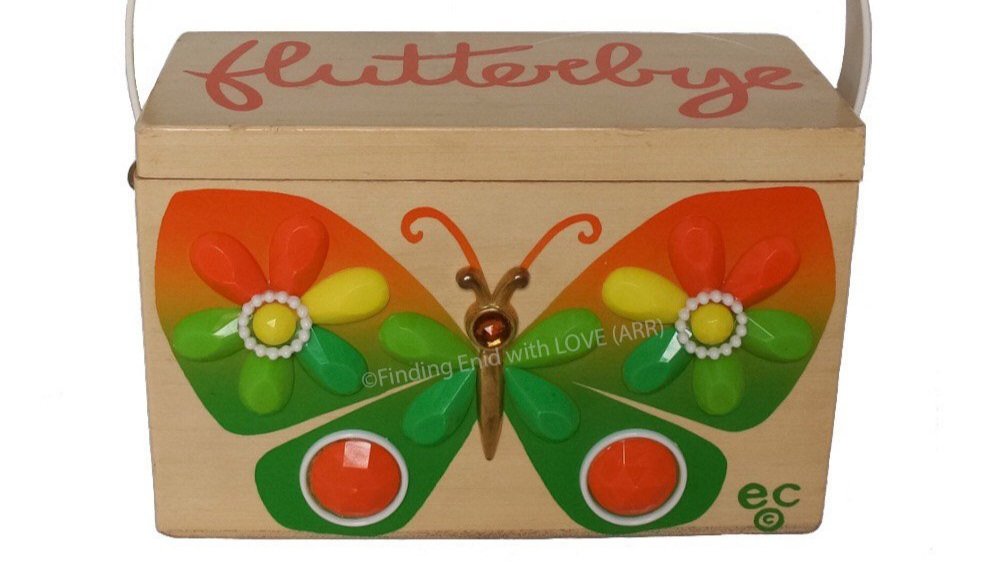
This 1971 bag provides another example of a title that draws on a highly familiar figure of speech. To evoke fun, even silliness, Enid uses a spoonerism, figurative language in which initial sounds of words or syllables are transposed, i.e. B-utter Fl-y becomes Fl-utter B-y. Enid additionally substitutes “bye” for “by”, maybe in a subtle reference to the bag’s wearer eluding some pest who is trying to catch her.

For this 1965 variation on her popular “gift horse” theme, Enid adds a wry twist you understand only if you read the title in combination with the art. Simply by adding the Greek columns, she evokes the Trojan horse. This shifts the meaning away from “don’t look a gift horse in the mouth", an elementary lesson on good manners and gratitude, to something quite different.

Here, Enid uses verbal irony (one thing is said but something else is implied) and combines two of her favorite subjects—birds and transportation. 1966

As Enid knew, twisting figurative meanings back toward literal ones sometimes provides the joke, as in this 1970 design.
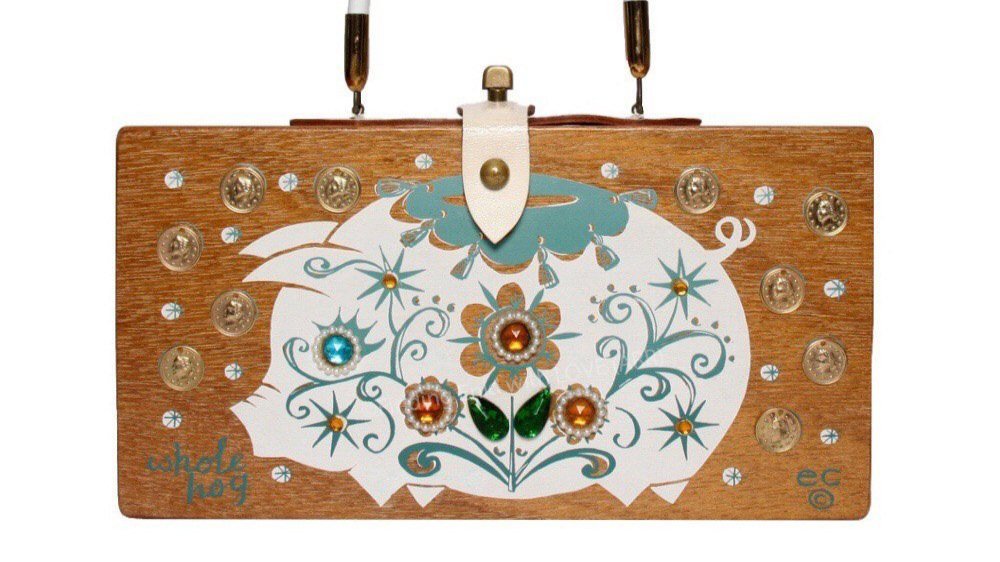
This 1964 box bag creates multiple meanings through the combination of title, art and embellishments. This critter is not a pig; it’s a piggy bank. We can tell by the spray of shiny fake coins, and the slot on the pig’s back. Read one way, “whole hog” suggests a fat money stash, as well as doing something with it (a Neiman Marcus shopping spree, perhaps?). At the same time, it’s charged with a subtle cautionary moral: people who hoard money (rather than spending it on Collins bags) are “piggy.”















